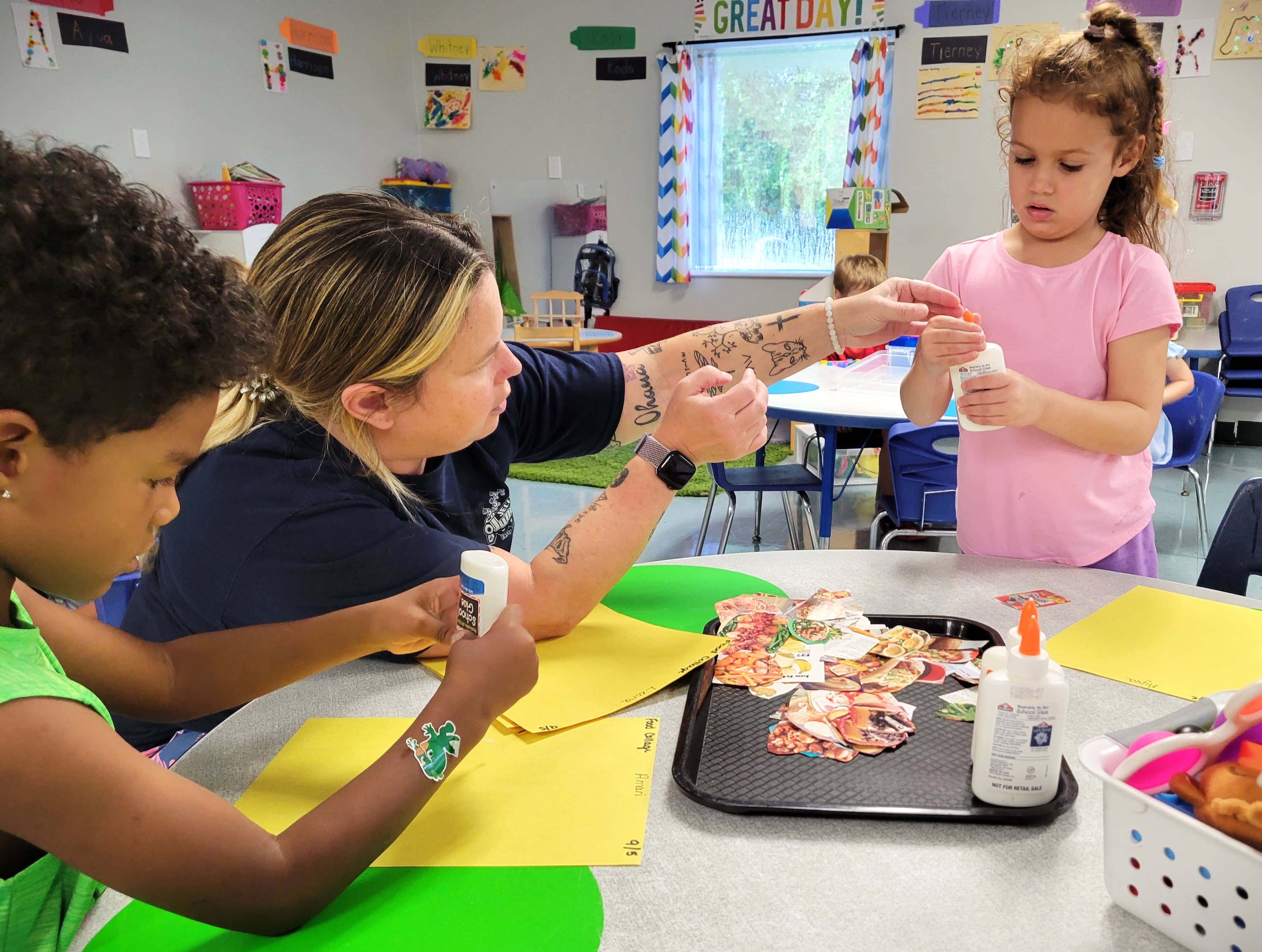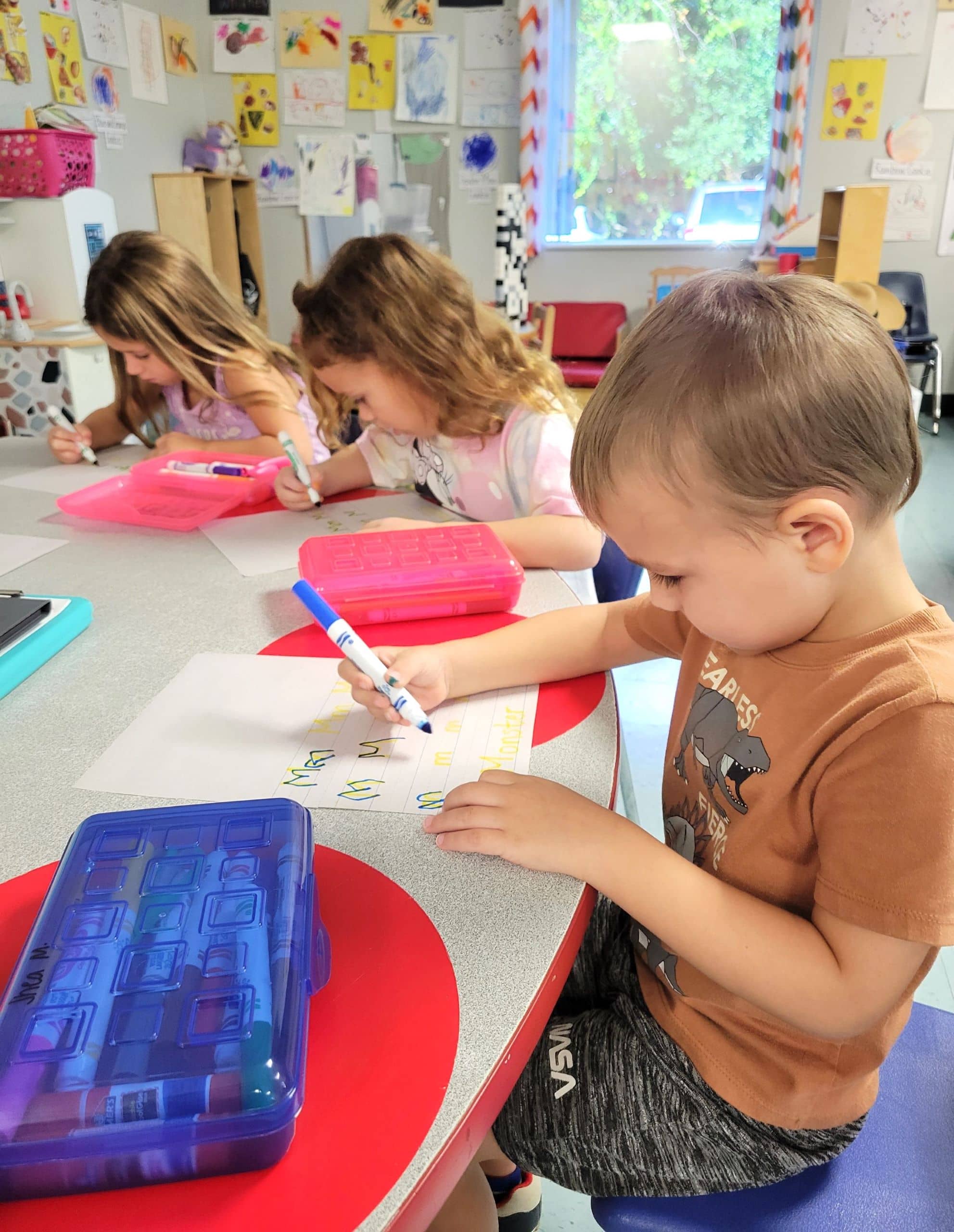The Importance of Consistent Routines in Preschool
As parents, ensuring your child’s success in preschool is one of your top priorities. Consistent attendance is a cornerstone of early childhood education, significantly impacting a child’s learning and development. This article explores the various aspects of why regular attendance is essential, how it benefits children’s growth, and the long-term advantages of committing to a consistent routine.
Jelly Bean Junction offers a full-time schedule for our infant program, toddler program, all the way through our voluntary pre kindergarten program (VPK). With structured routines, daily lesson plans, and advanced hands-on curriculum, we foster children’s development and growth each and every day. Jelly Bean Junction is considered one of the best childcare programs in Melbourne, Florida with both an APPLE (Accredited Professional Preschool Learning Environment), and Gold Seal Accreditations.
Why Being On Time Matters
The Impact of Punctuality on Learning
Punctuality is often overlooked, but it plays a critical role in a child’s preschool experience. When children arrive on time, they benefit from the full range of activities designed to stimulate their growth. Missing the beginning of the day can mean missing crucial instructions, social interactions, and foundational learning experiences. Research shows that children who regularly attend preschool are more likely to excel in literacy and numeracy skills, setting a strong academic foundation for their future.
Furthermore, being on time teaches children the value of responsibility. They learn to adhere to schedules, which is a vital life skill. In a world where deadlines and punctuality matter, instilling this habit early can lead to greater success later in life.
Setting a Positive Example for Children
Parents are the primary role models for their children, and demonstrating punctuality is an essential aspect of this. When parents prioritize being on time, it signals to children that education and commitment are important values. This lesson extends beyond preschool into other areas of life, such as school, extracurricular activities, and eventually, the workplace. The habits children develop in early childhood often carry into adulthood, making it crucial to set a positive example.
Moreover, consistently arriving on time can lessen the morning chaos in the family routine. This not only reduces stress for parents but also creates a calmer environment for children, enabling them to start their day positively.
How Consistent Routines in Preschool Help Children’s Development
Building a Sense of Security
A predictable daily routine provides a sense of safety and security for children. When kids know what to expect each day, they can focus better on learning and exploring their surroundings. This structure helps to reduce anxiety and fosters a positive emotional climate, which is essential for effective learning. Children thrive when they feel safe, and a consistent preschool schedule offers just that.
Routines can also help children understand the concept of time. Learning to anticipate what comes next—be it playtime, snack time, or circle time—gives them a sense of control over their environment. This understanding can lead to greater confidence in their abilities to navigate daily activities.
Encouraging Independence and Responsibility
Consistent routines in preschool encourage children to take on responsibilities that promote independence. As children learn to prepare for the day, pack their bags, and follow classroom protocols, they develop a sense of ownership over their learning. This not only fosters self-reliance but also teaches them to make decisions and manage their time effectively.
Independence is an essential skill for lifelong learning. When children are accustomed to routines, they are better equipped to handle the structured environments they will encounter in primary school and beyond.
Educational Opportunities from Full-Time Attendance
Access to Structured Learning Activities
Preschools are designed to offer structured learning experiences that promote cognitive, social, and emotional growth. Engaging in various activities—such as art, music, and sensory play—enriches the learning experience. Consistent attendance means children can participate in all planned activities, maximizing their educational opportunities.
Additionally, structured learning helps children understand the purpose behind activities. For instance, a science experiment conducted in a scheduled session can reinforce concepts learned previously, enhancing retention and comprehension. This cyclical learning process is vital for deepening knowledge and understanding.
Enhancing Social Skills Through Interaction
Full-time attendance in preschool allows children to interact with their peers regularly, an essential component of social development. Through play and structured group activities, children learn vital social skills such as sharing, cooperation, and conflict resolution. These interactions help them navigate complex social situations and develop empathy for others.
Furthermore, the friendships formed in preschool can be foundational. Children with strong social connections are more likely to develop self-esteem and emotional resilience, traits that contribute to success in later life. In essence, consistent attendance contributes not only to academic skills but also to vital social competencies.
Consistency and Relationship Building
Strengthening Adult Relationships
Regular attendance creates opportunities for parents and teachers to build strong relationships. When parents are engaged in their child’s education, communication improves. Teachers can provide valuable insights into a child’s progress, helping parents address any challenges early. This collaborative approach fosters a sense of community that benefits everyone involved.
Moreover, strong relationships built on consistent interactions can lead to more tailored educational experiences for children. When teachers know the families well, they can adapt their teaching methods to better suit each child’s unique needs.
Fostering Peer Connections
Beyond relationships with adults, consistent attendance allows children to cultivate friendships with their peers. These connections can offer emotional support and a sense of belonging, both critical to a child’s emotional health. As children engage in group activities, they learn to navigate different personalities and perspectives, which enhances their social adaptability.
Long-lasting friendships formed in preschool can contribute to a supportive network that extends into later educational settings. This network provides a sense of stability and comfort, making transitions to new environments smoother for children.
Preparing for Primary School and Beyond
The Role of a Consistent Schedule in Transition
Transitioning from preschool to primary school can be daunting for many children. However, a consistent preschool experience can ease this transition. Children who have been accustomed to routines and structured schedules are likely to adapt more quickly to the expectations of primary school. They carry with them the habits and skills cultivated during their preschool years, making the shift less intimidating.
Additionally, a strong foundation in learning habits established during preschool can lead to greater academic success. Children who are used to engaging with educational material regularly will find it easier to adapt to the curriculum of primary school, enhancing their overall learning experience.
Developing Lifelong Learning Habits
Instilling a love for learning in preschool sets the stage for a lifetime of educational pursuits. Children who regularly attend preschool develop routines that include exploration, questioning, and engagement with new concepts. Consistent attendance reinforces these behaviors, creating a positive feedback loop that encourages curiosity and a desire for knowledge.
As they progress through their educational journey, these foundational skills will be invaluable. Children with a strong educational background are more likely to pursue higher education and professional development opportunities, positioning them for future success.
Conclusion
Consistent preschool attendance plays a fundamental role in shaping a child’s educational experience. From fostering responsibility and independence to enhancing social skills and academic readiness, the benefits are multifaceted. By prioritizing punctuality and routine, parents can set their children on a path toward lifelong learning and success.
FAQs
1. What are the benefits of consistent preschool attendance?
Consistent attendance promotes better learning, enhances social skills, and fosters strong relationships with both peers and educators.
2. How can parents encourage their children to attend preschool regularly?
Establishing a consistent morning routine and emphasizing the importance of education can motivate children to regularly attend preschool.
3. How does punctuality affect a child’s emotional development?
Being on time helps children feel secure and reduces anxiety, allowing them to focus on learning and social interactions.
4. Can missing preschool days impact my child’s future schooling?
Yes, frequent absences can hinder a child’s social and academic development, making transitions to higher levels of education more challenging.
5. What strategies can I use to help my child adjust to a preschool routine?
Creating a structured daily schedule at home, including consistent bedtime and wake-up times, can help ease the transition into preschool routines.

